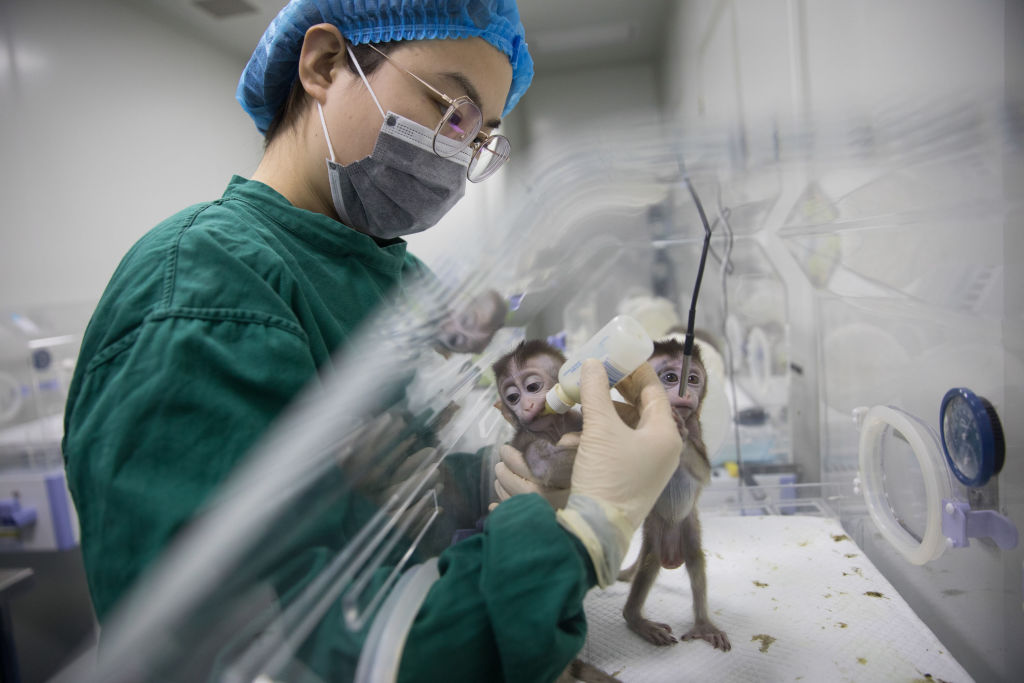ReTro, the rhesus monkey, has become the first cloned monkey to reach adulthood. While previous attempts at cloning monkeys have resulted in short-lived lives, ReTro’s successful journey marks a milestone in cloning. It opens up new possibilities for scientific research.
RELATED STORIES: Measles Alert: Travel Warning Issued After Exposure at D.C. Airports
The cloning process, known as somatic cell nuclear transfer (SCNT), involves extracting genetic information from a standard cell and implanting it into an egg from another monkey. ReTro’s survival and growth are celebrated worldwide, with researchers hopeful that cloned monkeys like him can be used for drug efficacy tests and other scientific advancements. Somatic cell nuclear transfer (SCNT), the technique used to clone ReTro, involves removing the genetic material from a standard cell and implanting it into an egg from which the genetic material has been removed. A team from the Chinese Academy of Sciences persevered and achieved two pregnancies and one live birth out of 113 embryos, resulting in the birth of ReTro.
ReTro’s survival and reaching adulthood are essential to the scientific community. Cloned primates like him are extensively used for basic and clinical research, making their survival crucial for various studies. Researchers, including Mu-ming Poo from the Institute of Neuroscience in the Chinese Academy of Sciences, express hopes of utilizing monkeys like ReTro for drug efficacy tests. Cloned monkeys have been instrumental in modeling conditions such as anxiety and depression, allowing scientists to assess the effectiveness and safety of various treatments, including antidepressants.
RELATED STORIES: Six Missing from St. Louis: Families Seek Information Amid Concerns of Cult Recruitment
By having cloned monkeys that can reach adulthood, researchers can conduct more extensive studies on various diseases, test the efficacy of drugs, and better understand genetic and environmental factors that contribute to certain conditions. The ability to clone monkeys that survive and grow offers a valuable resource for advancing medical knowledge and developing treatments for human health conditions. As with any scientific advancement, the cloning of monkeys raises ethical considerations. Researchers must approach this field cautiously and ensure ethical guidelines are followed.
According to UNILAD, the British animal welfare charity RSPCA has expressed concern for the wellbeing of cloned primates:
“There is no immediate application for this study. We are expected to assume that human patients will benefit from these experiments, but any real-life applications would be years away and it is likely that more animal ‘models’ will be necessary in developing these technologies. The RSPCA is deeply concerned about the very high numbers of animals who experience suffering and distress in these experiments and the very low success rate. Primates are intelligent and sentient animals, not just research tools.”
However, researcher Dr Falong Lu reassured that “all animal procedures in our research adhered to the guidelines set by the Animal Use and Care Committees at the Shanghai Institute of Biological Science, Chinese Academy of Sciences (CAS), and the Institute of Neuroscience, CAS Center for Excellence in Brain Science and Intelligence Technology.”







